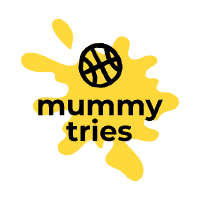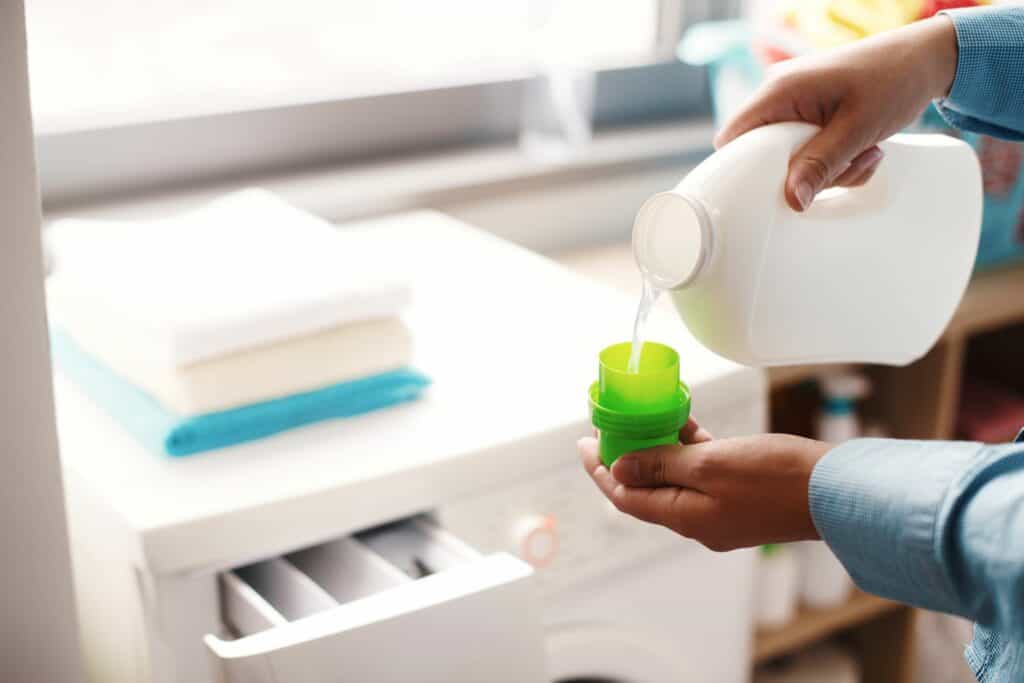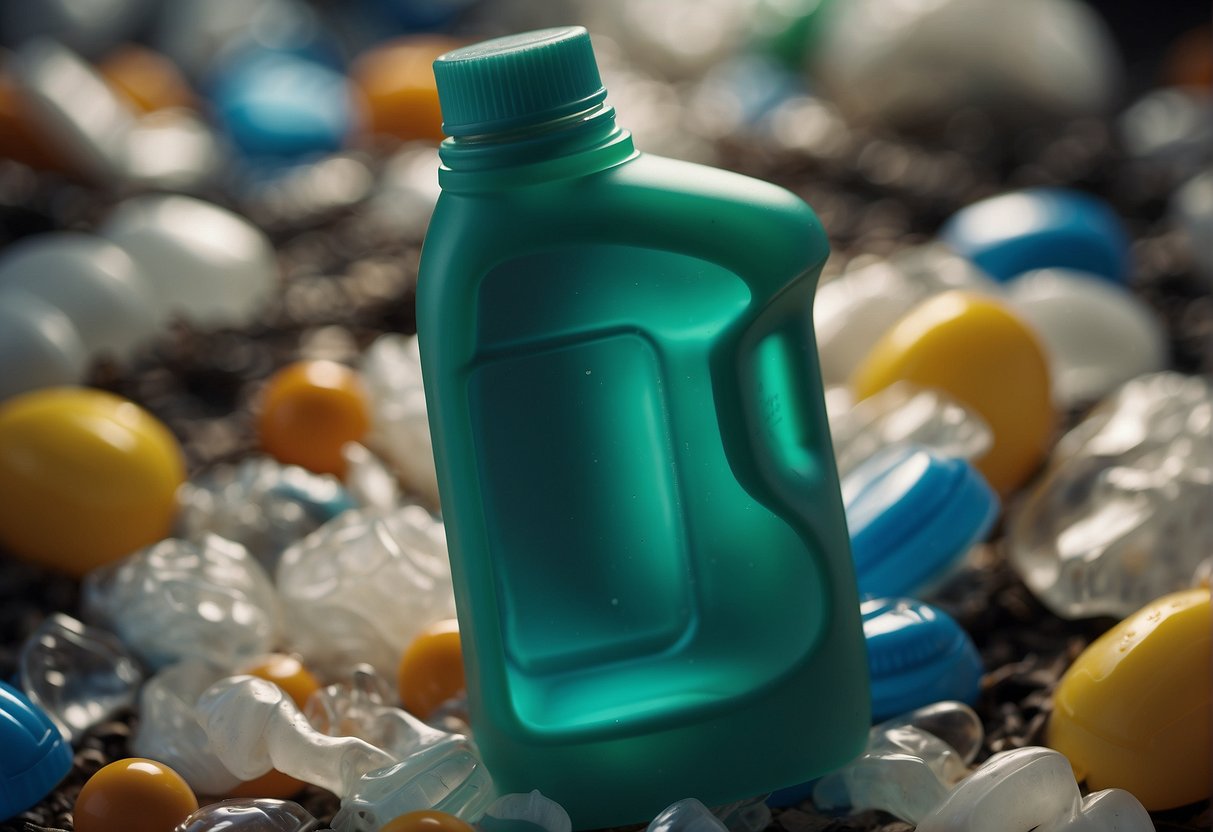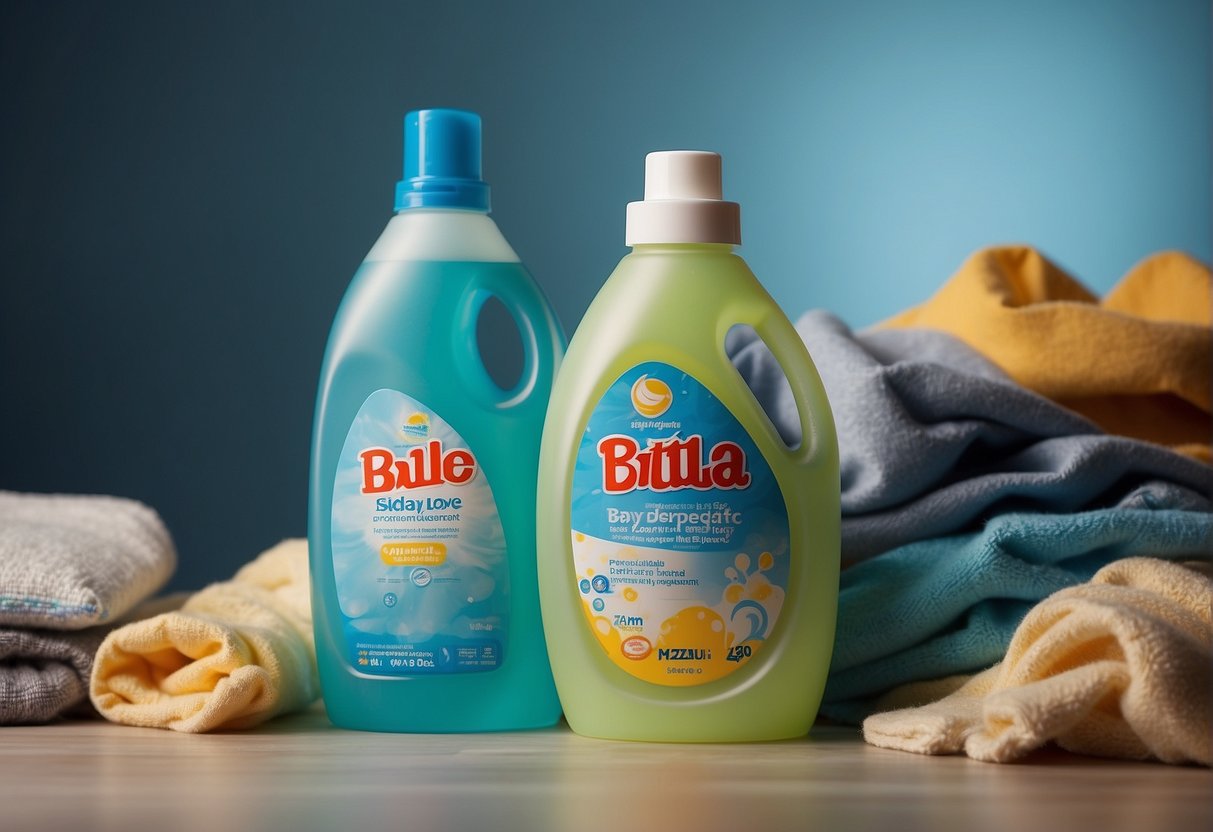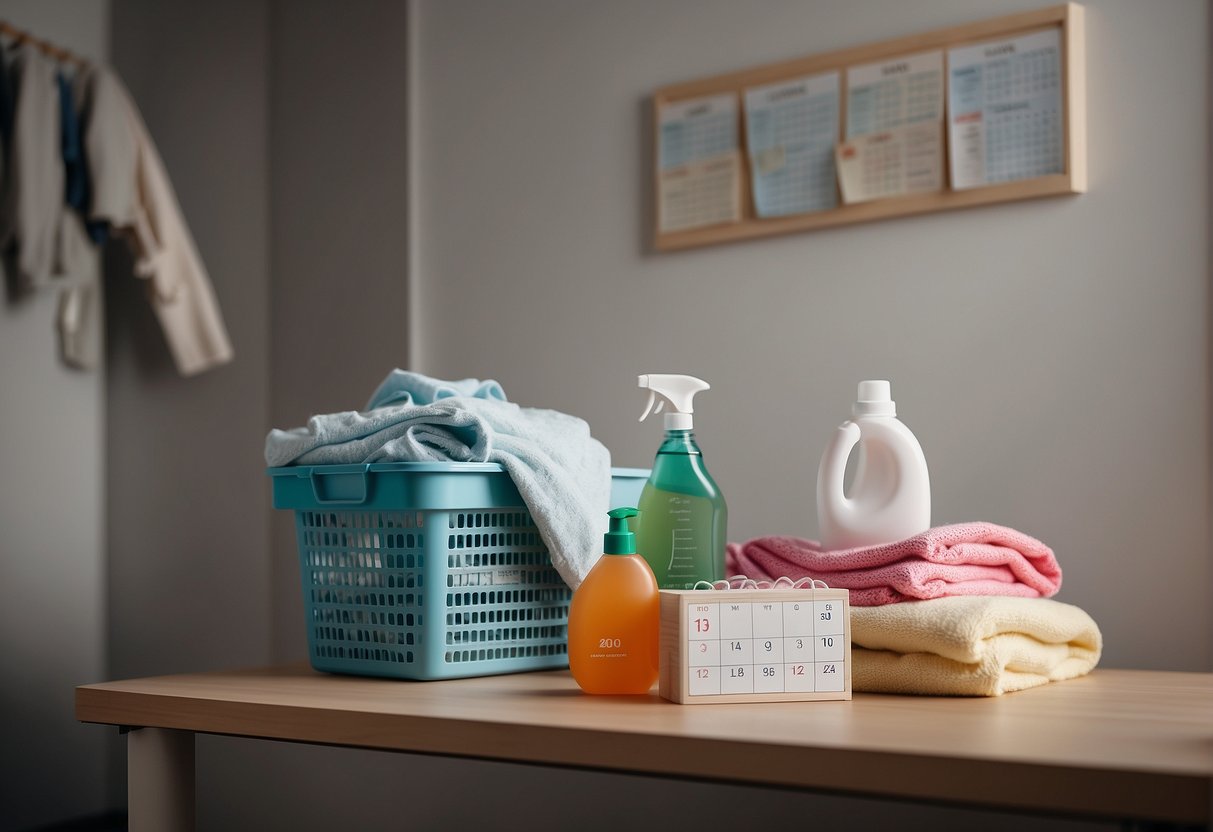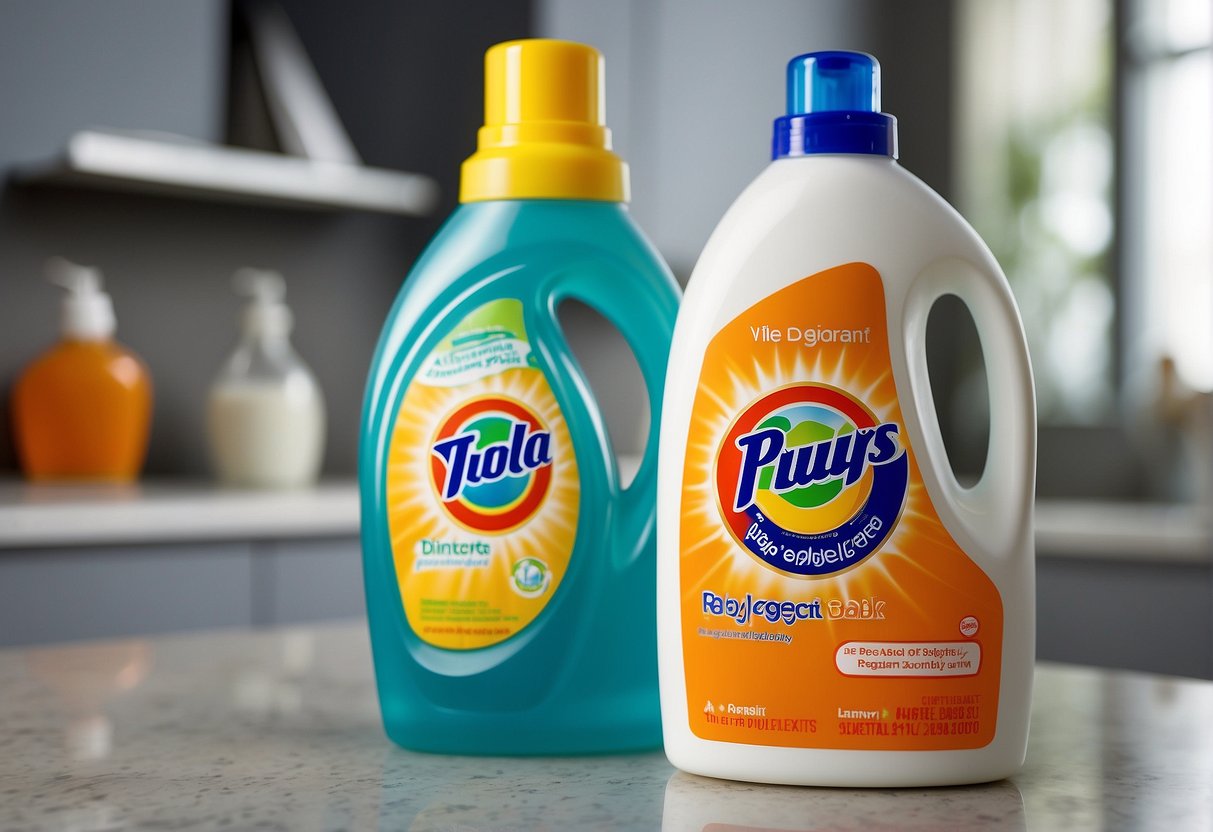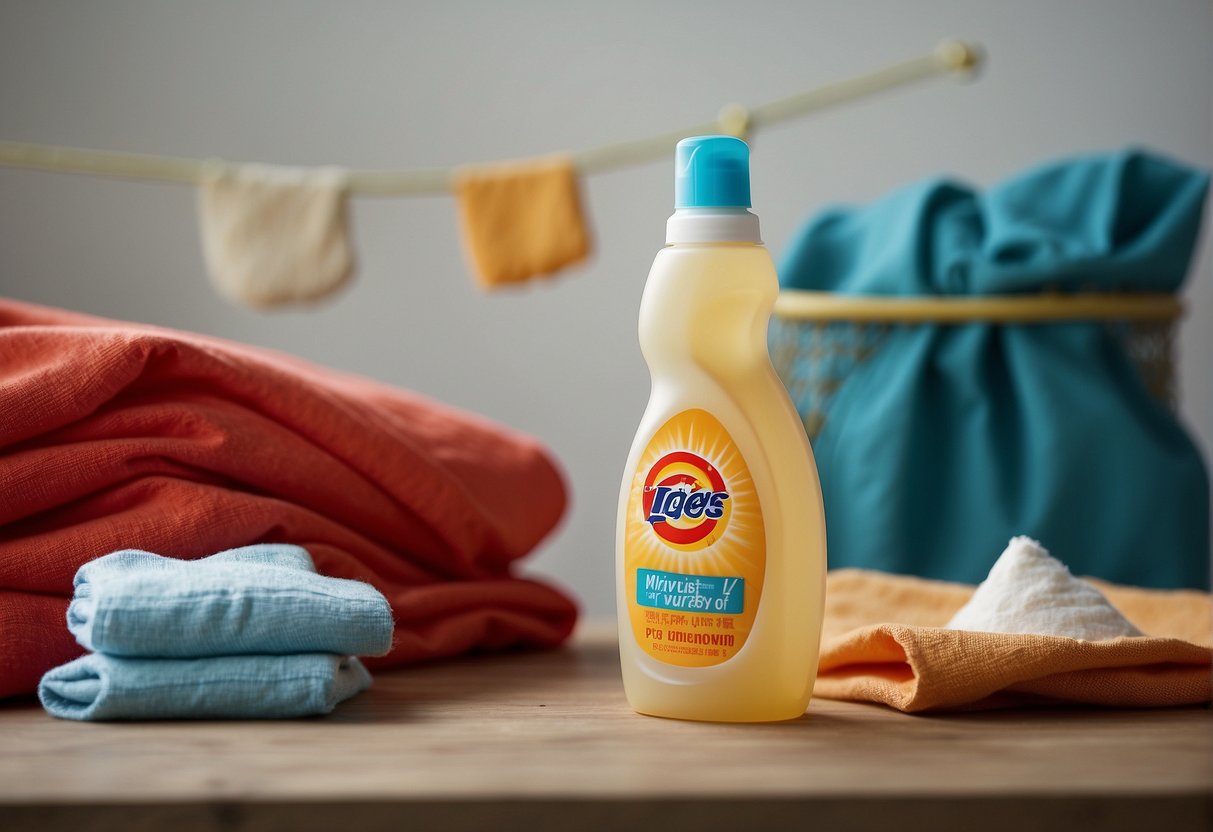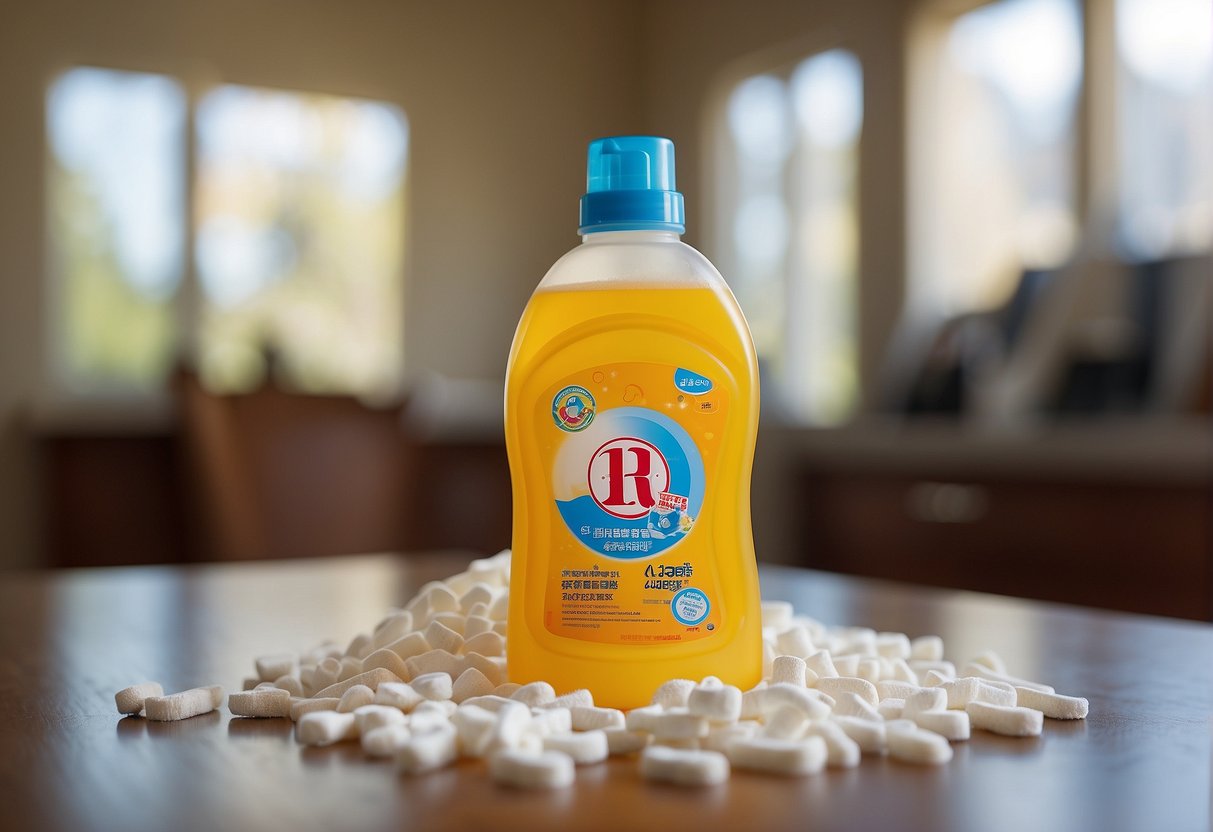Many new parents wonder when they can stop using baby detergent and switch to regular detergent. Baby detergent is specially formulated to be gentle on a baby’s delicate skin, but it can also be expensive. While there is no hard and fast rule about when to make the switch, there are some general guidelines that can help parents make the transition.
Understanding baby detergent is an important first step. Baby detergent is formulated to be free of harsh chemicals, fragrances, and dyes that can irritate a baby’s sensitive skin. It is also designed to be effective at removing stains and odors from baby clothes, which can be a challenge given the messes that babies can make. However, baby detergent can be more expensive than regular detergent, and some parents may wonder if it is really necessary to use it for an extended period of time.
Determining the right time to transition to regular detergent can depend on a variety of factors, including the baby’s age, skin sensitivity, and overall health. While some parents may choose to make the switch as early as six months, others may wait until their baby is a year old or older. It is important to be mindful of any skin irritation or allergic reactions that may occur when switching to regular detergent, and to take steps to manage these issues if they arise.
Understanding Baby Detergent
When it comes to washing baby clothes, parents may wonder whether they should use regular detergent or baby detergent. Baby detergent is specifically formulated to be gentle on a baby’s sensitive skin and free from harsh chemicals, fragrances, and dyes that could irritate their delicate skin.
Why Choose Baby Detergent
Baby detergent is designed to be gentle on a baby’s skin. It is often hypoallergenic and less likely to cause skin irritations or allergies. Baby detergent is also free from harsh chemicals, fragrances, and dyes that are commonly found in regular detergent. Using regular detergent can cause dryness, irritation, and redness on a baby’s delicate skin.
Key Ingredients in Baby Detergent
Most baby detergents are made with mild, plant-based ingredients that are gentle on a baby’s skin. Some common ingredients found in baby detergent include:
- Enzymes: Enzymes help to break down stains and dirt on baby clothes without the need for harsh chemicals.
- Surfactants: Surfactants help to lift dirt and stains from fabrics, making them easier to remove during the wash cycle.
- Softeners: Softeners help to keep baby clothes feeling soft and comfortable against their delicate skin.
- Fragrance-free: Baby detergents are often fragrance-free to avoid potential irritation or allergic reactions.
Overall, using baby detergent is a safe choice for washing baby clothes. Parents can transition from baby detergent to regular detergent around their baby’s first birthday. Before then, baby clothes should be washed in a mild detergent that is free of dyes and fragrances to avoid potential irritation and allergic reactions. By understanding the key ingredients in baby detergent, parents can make an informed decision on what detergent to use for their baby’s delicate skin.
Determining the Right Time to Transition
Transitioning from baby detergent to regular detergent can be a confusing process for new parents. It is important to know when to make the switch to ensure that your baby’s skin is not irritated by harsh chemicals in regular detergent. Here are some tips to help you determine the right time to transition.
Signs Your Baby May Be Ready
One of the first signs that your baby may be ready to transition to regular detergent is when they turn one year old. By this time, their skin has developed resilience and can tolerate the chemicals found in regular detergent. However, it is important to keep an eye out for any skin reactions such as itchy, scaly, or red skin. If you notice any of these symptoms, it may be a sign that your baby is not yet ready to switch to regular detergent.
Consulting with a Pediatrician
If you are unsure about when to transition your baby to regular detergent, it is always a good idea to consult with your pediatrician. They can provide you with personalized advice based on your baby’s skin type and any allergies or sensitivities they may have. Your pediatrician may also recommend organic detergent as an alternative to regular detergent if your baby is experiencing skin reactions.
In summary, transitioning from baby detergent to regular detergent can be a confusing process for new parents. The best time to make the switch is when your baby turns one year old, but it is important to keep an eye out for any skin reactions. Consulting with a pediatrician can also provide you with personalized advice on when to make the switch and what type of detergent to use.
How to Transition to Regular Detergent
Transitioning from baby detergent to regular detergent can be a daunting task for new parents. However, it is a necessary step to take as your baby grows older and their skin becomes less sensitive. Here are some steps to help you make the switch smoothly.
Step-by-Step Transition Process
-
Start by washing your baby’s clothes in a mixture of baby detergent and regular detergent. This will help your baby’s skin gradually adjust to the new detergent.
-
Gradually increase the amount of regular detergent in the mixture over the course of a few weeks.
-
Once your baby’s skin has adjusted to the new detergent, you can start washing their clothes in regular detergent only.
-
Watch for any signs of skin irritation or allergic reactions. If your baby develops a rash or redness, switch back to baby detergent or try a different brand of regular detergent.
Choosing the Right Regular Detergent
When choosing a regular detergent, it is important to look for one that is fragrance-free, dye-free, and hypoallergenic. This will help minimize the risk of skin irritation and allergic reactions.
Both liquid and powder detergents can be used, but liquid detergents are generally easier to measure and less likely to leave residue on clothes.
Some popular brands of regular detergent that are safe for babies include Tide Free & Gentle, Seventh Generation Free & Clear, and All Free Clear. Be sure to read the label carefully to ensure that the detergent is safe for use on baby clothes.
Overall, transitioning to regular detergent is a simple process that can be done gradually over time. By following these steps and choosing the right detergent, you can ensure that your baby’s clothes are clean and free of irritants.
Managing Skin Irritation and Allergies
Babies have delicate skin that is prone to irritation and allergic reactions. As a result, parents often use baby detergent to wash their clothes. However, there comes a time when parents may wonder when they can stop using baby detergent. This section will provide information on managing skin irritation and allergies in babies.
Identifying and Treating Skin Reactions
Skin irritation can manifest in different ways, such as redness, rashes, hives, and scaly skin. Eczema and dermatitis are also common skin conditions in babies. If a baby experiences any of these symptoms, it is essential to identify the cause and seek medical attention if necessary. Some common irritants that can cause skin reactions include detergents, soaps, lotions, and fabrics.
If a baby experiences skin irritation, parents can take some steps to alleviate the symptoms. For example, they can apply a gentle moisturizer to the affected area, avoid using harsh soaps or detergents, and dress the baby in loose-fitting clothes made of soft fabrics. In severe cases, a doctor may prescribe a topical cream or ointment to treat the condition.
Preventive Measures for Sensitive Skin
Preventing skin irritation and allergies in babies requires taking proactive measures. Parents can start by using hypoallergenic products, such as baby detergent, soap, and lotion. They should also avoid using fabric softeners and dryer sheets, as they can contain harsh chemicals that can irritate a baby’s skin.
Another way to prevent skin irritation is by washing clothes in warm water instead of hot water. Hot water can strip clothes of their natural oils, making them more likely to irritate a baby’s skin. Additionally, parents should avoid overloading the washing machine, as this can prevent clothes from getting clean and cause detergent buildup.
In conclusion, managing skin irritation and allergies in babies requires taking proactive measures and identifying and treating skin reactions promptly. While baby detergent is often recommended for washing baby clothes, parents can transition to regular detergent when their baby’s skin is more resilient and can handle mild irritants found in regular detergents.
Additional Considerations for Laundry Care
When it comes to laundry care for babies, there are additional considerations to keep in mind beyond just using baby detergent. Here are a few key areas to focus on:
Effective Stain Removal
Babies are notorious for making messes, so it’s important to have effective stain removal techniques. One option is to pre-treat stains with a stain remover before washing. Another option is to use a laundry detergent specifically designed for stain removal, such as Tide.
The Role of Fabric Softeners
While fabric softeners can make clothes feel softer and smell good, they can also contain harsh chemicals that can irritate a baby’s sensitive skin. Instead, consider using natural fabric softeners such as vinegar or wool dryer balls.
Eco-Friendly and Cost-Effective Options
Using eco-friendly and cost-effective laundry options can be better for both the environment and your wallet. Seventh Generation is a popular brand of eco-friendly laundry detergent that is free of harsh chemicals and made with natural ingredients. Another option is to use a free and clear laundry detergent, which is free of dyes and fragrances and can be more affordable than other options.
Overall, taking extra care with laundry can help keep a baby’s clothes clean and comfortable without exposing them to harsh chemicals or causing skin reactions.
Frequently Asked Questions
At what age is it safe to transition from baby to regular detergent?
According to Natural Baby Life, it is safe to transition from baby detergent to regular detergent around a baby’s first birthday. Before then, baby clothes should be washed in a mild detergent that is free of dyes and fragrances to avoid potential irritation and allergic reactions.
What are the signs that a child is ready for regular laundry detergent?
As per Family Hint, the signs that a child is ready for regular laundry detergent include less sensitivity to skin, reduced incidence of rashes or allergies, and less fussiness. Parents should observe their child’s skin reactions to the new detergent and make the transition gradually.
How long is it recommended to use special laundry detergent for infants?
As stated by Parental Questions, it is recommended to use special laundry detergent for infants until they are around one year old. The reason is that babies have delicate skin that is more sensitive than adult skin. Using regular detergent can cause dryness, irritation, and redness. This is because regular detergent contains harsh chemicals and fragrances that can be too harsh for a baby’s delicate skin.
Are there any risks associated with switching to standard detergent too soon?
As per Mommy Cooz, switching to standard detergent too soon can cause skin irritation and rashes. Parents should observe their child’s skin reactions when they switch to regular detergent and make the transition gradually.
What ingredients should be avoided in laundry detergent for young children?
According to Natural Baby Life, laundry detergent for young children should be free of dyes and fragrances to avoid potential irritation and allergic reactions. Additionally, parents should avoid laundry detergents that contain phosphates, enzymes, and brighteners, as they can be too harsh for a baby’s delicate skin.
Can regular detergent be used for a child with sensitive skin?
As per Project Father, regular detergent can be used for a child with sensitive skin if they have outgrown baby detergent. However, parents should choose a mild detergent that is free of dyes and fragrances to avoid potential irritation and allergic reactions. It is also recommended to avoid laundry detergents that contain phosphates, enzymes, and brighteners, as they can be too harsh for a child’s delicate skin.

My name is Laura, and as a mother of two, I understand firsthand the joys and challenges of raising a child. That’s why I created this website, to provide a comprehensive and trustworthy source of information and support for new and expectant parents.
